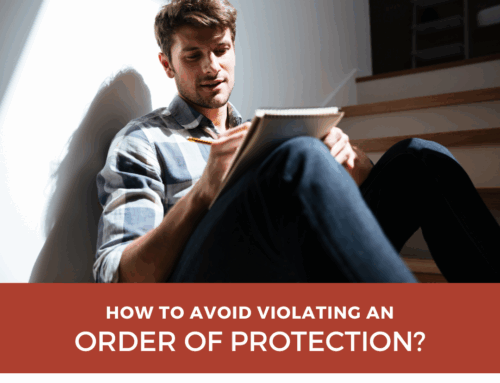When facing domestic battery charges, claiming self-defense can be a valid legal strategy if you acted to protect yourself from harm. Illinois law allows individuals to defend themselves under certain circumstances, but the burden of proof often falls on the defendant to demonstrate that their actions were necessary and reasonable. Understanding what’s considered self-defense and how courts evaluate these claims can help you build a strong defense.
What’s Considered Self-Defense in Domestic Battery Cases
This guide explains the following:
- The legal definition of self-defense in Illinois
- How the courts evaluate self-defense claims
- Evidence that supports a self-defense argument
- Situations where self-defense may not apply
- Why working with a domestic battery defense lawyer is essential
Here’s a closer look at each.
The Legal Definition of Self-Defense in Illinois
Under Illinois law, self-defense is defined as the use of force that is necessary to prevent imminent harm to oneself or another person. The force used must be proportional to the threat faced. For example, if someone is attacking you physically, you may be justified in using physical force to stop the assault, but using excessive force may not qualify as self-defense.
To claim self-defense, you must demonstrate that:
- You reasonably believed you were in imminent danger of harm.
- The force you used was necessary to prevent that harm.
- Your response was proportionate to the threat.
How the Courts Evaluate Self-Defense Claims
Courts consider several factors when evaluating self-defense claims in domestic battery cases. These include the severity of the threat, the actions of both parties, and whether the defendant had any alternatives to using force. Judges and juries will also examine whether your belief that you were in danger was reasonable given the circumstances.
For example, if there is evidence that the alleged victim was the aggressor and you acted to protect yourself, the court may find your actions justified. However, if you continued to use force after the threat had passed, your claim of self-defense may be weakened.
Evidence That Supports a Self-Defense Argument
To successfully argue self-defense, you’ll need evidence that supports your version of events. This may include:
- Witness statements from people who observed the incident
- Medical records showing injuries consistent with self-defense
- Photos or videos of the scene that corroborate your claims
- Text messages or other communications that provide context
Your attorney will help you gather and present this evidence effectively to strengthen your defense.
Situations Where Self-Defense May Not Apply
There are situations where a self-defense claim may not be valid. For example, if you initiated the conflict or used force that was excessive relative to the threat, the court may reject your argument. Additionally, self-defense does not apply if your actions were retaliatory rather than preventative.
It’s also important to note that claims of self-defense can be complicated if there is an order of protection in place. Violating such an order, even in the context of defending yourself, can lead to additional legal complications.
Why Working With a Domestic Battery Defense Lawyer Is Essential
A domestic battery defense lawyer is critical when asserting a self-defense claim. Your attorney will:
- Analyze the details of the incident to determine whether self-defense applies
- Collect and present evidence that supports your argument
- Challenge the prosecution’s narrative and highlight inconsistencies in their case
- Represent you in court and advocate for your rights
An experienced lawyer can ensure that your self-defense claim is presented clearly and persuasively, increasing your chances of a favorable outcome.
Understanding what’s considered self-defense in domestic battery cases is key to protecting your rights and building a solid defense. By working with an experienced attorney and gathering the necessary evidence, you can navigate the legal process with confidence and focus on achieving the best possible resolution for your case.
Do You Need to Talk to an Attorney About Domestic Battery Defense?
If you need to talk to a domestic battery defense attorney in Illinois, we’re here to help. Call us at 847-920-4540 now – we’ll be happy to give you a free consultation and talk to you about your options.







Leave A Comment
You must be logged in to post a comment.